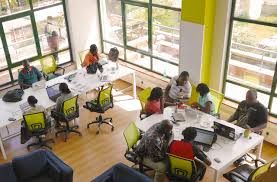The Nigerian Academy of Letters (NAL), led by Professor Sola Akinrinade, held its 27th Convocation with the theme “The Humanities in the Modern Digital World.” The event took place at the University of Lagos, Akoka.
In her short speech, the Vice Chancellor, Professor Folasade Ogunsola, stressed that “arts and culture constantly remind us of who we are as Africans.” She noted that Africa is unique, with over one billion people speaking more than 2,000 languages out of the world’s 6,000 languages. Nigeria alone has more than 550 languages, each carrying cultures and civilizations yet to be fully explored.
The guest lecturer, Professor Francis Egbokhare, said every language carries its own truth. What was once seen as superstition—such as mythology, artifacts, meditation, and contemplation—is now proving meaningful in today’s world. He explained that both Artificial Intelligence (AI) and digitalization are helping to preserve knowledge stored in these languages, and could revive over 1,000 extinct ones.
Speakers at the convocation agreed that if the humanities use digitalization and AI wisely, they can help Africans rediscover their true identity, rather than depend on propaganda from outsiders. Africa, with its large youth population and vast arable land, stands to gain the most from this.
One example given was recursive knowledge. Just as computer scientists link small codes to create bigger solutions, African languages and their hidden knowledge can also be connected. The famous Ananse folktales of the Akans show this wisdom. Through AI simulations, researchers have found links between African languages and those from other regions. Stolen African artifacts, now slowly being returned, have already been studied with AI tools, which revealed hidden knowledge still not made public. African scholars must push to uncover this knowledge, just like the late historian Cheikh Anta Diop once did.
Another example is how AI helps researchers recall and organize knowledge. A lecturer at the event admitted she used AI to write a paper, and the outcome was far better than expected. This, however, raised concerns about originality and plagiarism, though current guidelines permit up to 30% similarity. Scholars warned that while AI can improve research, it must not be misused by undergraduates, who are already abusing it. Lecturers must act as gatekeepers.
The third example is AI’s ability to simulate multiple scenarios for decision-making. But the real challenge is knowing what information to feed into the system. This requires careful understanding and analysis, which is the true test of knowledge.
For the humanities, which often work with long-term knowledge, AI and digitalization offer tools to renew African identity. For instance, Professor Abigail Ogwezzi-Nsikak called for “citizens’ journalism,” where communities tell their own stories to shape Africa’s image. Professor Olukoya Ogen emphasized the need to cross-reference knowledge for a broader African perspective beyond science. Professor Gideon Omachone noted that connecting Africa’s 2,000 languages could produce groundbreaking knowledge if governments support such research with proper funding.
For NAL, the responsibility is clear: to re-imagine African heritage with AI and digital tools, in line with the United Nations’ Sustainable Development Goals and Africa’s Agenda 2063. As Professor Andrew Haruna takes over as the new President of NAL, members urged African leaders and the African Union to wake up and act.


